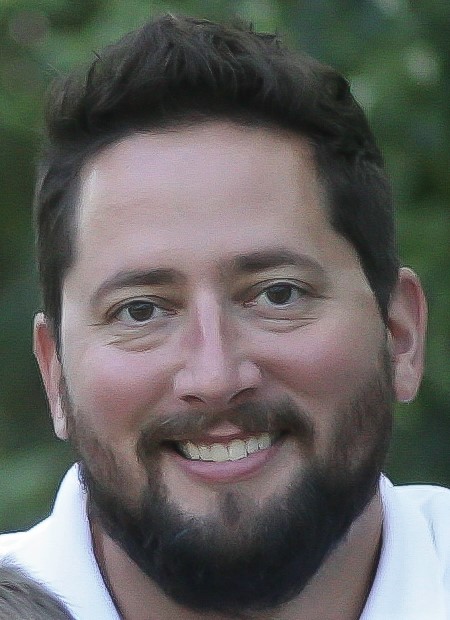To be eligible for admission to the Graduate School at Marquette University, applicants must meet the following requirements:
The Sports and Exercise Analytics program can accommodate students from a wide variety of disciplines, including exercise science, kinesiology, anatomy and physiology, sports management, business management, computer science, data science, engineering and many other related disciplines.
Completion of the following coursework is required:
- Computer programming course (e.g. COSC 1010 Introduction to Software Development at Marquette).
- Statistics course (e.g. MATH 1700 Modern Elementary Statistics at Marquette).
- Course in exercise physiology, anatomy, or similar.
Contact the Graduate Admissions Counselor for this program for further clarification on any of these required courses.
Application Requirements
Read all application instructions prior to beginning an application.
- A completed online application form and fee.
- Transcripts:
- A curriculum vitae including work history, formal education, continuing education, licensing and certification, professional organizations, honors and awards, publications, presentations and grants.
- A personal statement of no more than 500 words addressing your purpose for applying to the program, your ability to successfully complete the program and your goals (short and long term).
- Three letters of recommendation addressing the applicant’s academic, professional, clinical, personal attributes and potential for meaningful graduate study. At least one academic reference must be included.
- GRE scores. GRE scores are only required if degree GPA is below 3.000.
- For international applicants only: a TOEFL score or other acceptable proof of English proficiency.
- Applicants may wish to submit one example of written work, such as a class project, course assignment, first author publication, grant application, etc. (optional).
- A virtual interview with the admissions committee may be needed.
1Upon admission, final official transcripts from all previously attended colleges/universities, with certified English translations if original language is not English, must be submitted to the Graduate School within the first five weeks of the term of admission or a hold preventing registration for future terms will be placed on the student’s record.
2Upon admission, an official course-by-course transcript/academic record evaluation must be submitted to the Graduate School within the first five weeks of the term of admission or a hold preventing registration for future terms will be placed on the student’s record.
 Dr. Kristof Kipp - Professor of Exercise Science and Co-Director of the Sports and Exercise Analytics Program
Dr. Kristof Kipp - Professor of Exercise Science and Co-Director of the Sports and Exercise Analytics Program
Kristof Kipp joined the Department of Physical Therapy Program in Exercise Science at Marquette University in the fall of 2011. He received a PhD in nutrition and exercise sciences with emphasis in biomechanics from Oregon State University and completed a post-doctoral research fellowship at the University of Michigan.
Dr. Kipp’s academic and research interests revolve around sports science and biomechanics. He also helps direct Marquette University’s Motion Analysis and Biomechanics Laboratory.
For more information on Dr. Kipp, please visit the Physical Therapy Department page
 Dr. Danilo Tolusso - Clinical Assistant Professor of Exercise Science and Co-Director of the Sports and Exercise Analytics Program
Dr. Danilo Tolusso - Clinical Assistant Professor of Exercise Science and Co-Director of the Sports and Exercise Analytics Program
Dr. Danilo Tolusso joined the Physical Therapy Department in 2024 and has a PhD in Human Performance from the University of Alabama, along with a graduate certificate in Quantitative Educational Research.
His academic interests focus on data analytics and measurement within the realm of sport. His research centers on assessing fatigue and recovery, specifically validating subjective, non-invasive measures of performance recovery in athletic populations.
Dr. Tolusso has also collaborated on manuscripts across a wide variety of populations, including pregnant women, adolescents, and tactical populations. In addition to his own work, he actively contributes to the International Journal of Exercise Science as a quantitative methodologist and section editor.
 Michael Kiely - Clinical Assistant Professor of Exercise Science
Michael Kiely - Clinical Assistant Professor of Exercise Science
Michael Kiely joined the Physical Therapy Department in 2024 and is a sports scientist with significant work in sports orthopedic biomechanics and sports performance. He specializes in the return to sport setting, using biomechanical data to optimize and individualize exercise programming for athletes recovering from injury. He is also a certified strength and conditioning coach, actively coaching a range of athletes including professional, collegiate, and high school levels.
Since graduating from Marquette University, he spent several years working for Training HAUS and Twin Cities Orthopedics in Eagan, MN where he developed a sports science lab designed to provide state-of-the-art biomechanical testing for athletes recovering from injury. His interests focus on developing best practice for the translation and utilization of data to drive individualized exercise programming.
 Dr. Walter Bialkowski - Associate Professor of Practice
Dr. Walter Bialkowski - Associate Professor of Practice
Dr. Bialkowski is trained as a clinical epidemiologist and translational data scientist. He first worked professionally as a Project and Program Manager in resuscitation research involving out-of-hospital cardiac arrest, traumatic brain injury, and hypovolemic shock clinical trials. He later moved into a Program Director role in the field of transfusion medicine and led several projects including observational and interventional clinical studies.
As an educator, Dr. Bialkowski prioritizes applied learning of data science skills. Students in his classes, and those involved in his research program, apply data science skills through individual assignment and project work. His courses engage with students across disciplines, including sports and exercise, criminal justice, accounting, healthcare, and many professional industries.
For more information on Dr. Bialkowski, please visit the Computer Science Department page
THESIS OPTION (PLAN A)
The master's student in Plan A must complete the required courses in data science (15 credits), the required courses in human performance/exercise physiology (12 credits), and 6 credits of thesis, for a total of 33 credits.
NON-THESIS OPTION (PLAN B)
The master's student in Plan B must complete the required courses in data science (15 credits), the required courses in human performance/exercise physiology plus electives (15 credits), and 3 credits of project, for a total of 33 credits.
REQUIRED COURSE WORK FOR PLAN A AND PLAN B
|
|
|
| COSC 5500 |
Visual Analytics |
3 |
| COSC 6510 |
Data Intelligence |
3 |
| COSC 6520 |
Data Analytics |
3 |
| COSC 6570 |
Data at Scale |
3 |
| COSC 6820 |
Data Ethics |
3 |
|
|
|
| EXPH 5192 |
Advanced Exercise Physiology |
3 |
| SPRT 6110 |
Advanced Applied Biomechanics in Injury Prevention and Performance |
3 |
| SPRT 6190 |
Advanced Strength and Conditioning: Data Analytics |
3 |
| SPRT 6958 |
Readings and Research in Sports and Exercise Analytics (taken once) |
0 |
|
9 |
| Total Credit Hours |
33 |
ADDITIONAL COURSE REQUIREMENTS PLAN A (THESIS)
|
3 |
| SPRT 6999 |
Master's Thesis |
6 |
| Total Credit Hours |
9 |
ADDITIONAL COURSE REQUIREMENTS PLAN B (NON-THESIS)
|
6 |
| SPRT 6600 |
Project Design and Development in Sports and Exercise Analytics |
1 |
| SPRT 6998 |
Professional Project in Sports and Exercise Analytics |
2 |
| Total Credit Hours |
9 |

 Dr. Kristof Kipp - Professor of Exercise Science and Co-Director of the Sports and Exercise Analytics Program
Dr. Kristof Kipp - Professor of Exercise Science and Co-Director of the Sports and Exercise Analytics Program
 Michael Kiely - Clinical Assistant Professor of Exercise Science
Michael Kiely - Clinical Assistant Professor of Exercise Science


